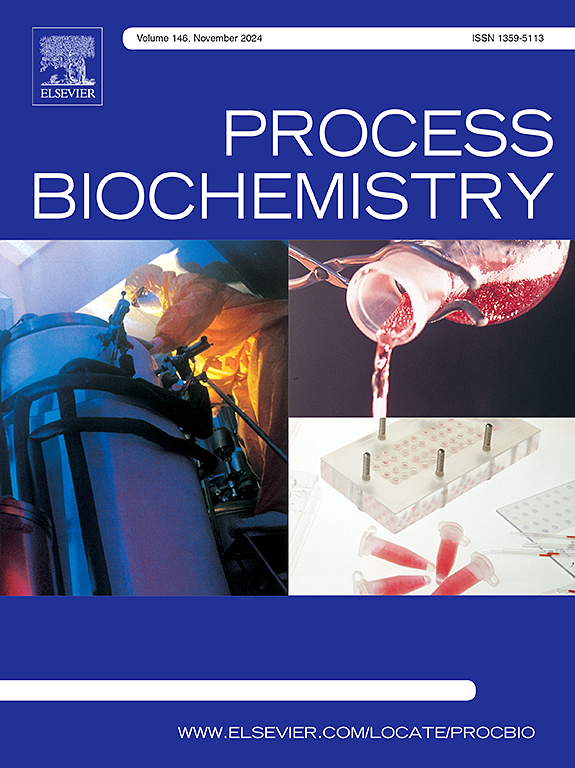Direct immobilization of an engineered Bacillus subtilis lipase A variant: Evaluation of substrate specificity, solvent stability and peptide synthesis
IF 3.7
3区 生物学
Q2 BIOCHEMISTRY & MOLECULAR BIOLOGY
引用次数: 0
Abstract
Enzyme-mediated peptide synthesis is a promising alternative for current industrial requirements, mainly due to its potential for increasing process sustainability and efficiency. In this work, peptide synthesis using lipases was studied, and the peptide synthesis activity of a previously reported Bacillus subtilis lipase A (BSLA) variant, P5F3_BSLA (F41L-∆W42-∆D43-R44P) was evaluated. P5F3_BSLA was immobilized on a hydrophilic mesoporous silica support functionalized with glyoxyl groups. A rapid and direct immobilization approach was used from cell culture supernatant in a single vessel without prior protein purification. The effect of immobilization on the performance of P5F3_BSLA regarding substrate specificity, peptide synthesis, and thermal and solvent resistance was evaluated and compared to the WT_BSLA enzyme. The variant showed a similar immobilization yield compared to Wt_BSLA; however, it showed different immobilization kinetics. The P5F3 variant showed an increased solvent resistance in 100 % isopropyl alcohol and an increased activity against long-chain fatty acid substrates. Besides, the P5F3_BSLA variant showed a 1.2-fold increase in glycine polymerization compared to WT_BSLA. The simple, efficient, and successful immobilization of this lipase, its resistance to solvents, and its potential use in peptide synthesis opens an exciting possibility of applications for the industry, highlighting the combination of protein engineering and enzyme immobilization tools to develop biocatalysts with novel properties from widely studied enzymes.
求助全文
约1分钟内获得全文
求助全文
来源期刊

Process Biochemistry
生物-工程:化工
CiteScore
8.30
自引率
4.50%
发文量
374
审稿时长
53 days
期刊介绍:
Process Biochemistry is an application-orientated research journal devoted to reporting advances with originality and novelty, in the science and technology of the processes involving bioactive molecules and living organisms. These processes concern the production of useful metabolites or materials, or the removal of toxic compounds using tools and methods of current biology and engineering. Its main areas of interest include novel bioprocesses and enabling technologies (such as nanobiotechnology, tissue engineering, directed evolution, metabolic engineering, systems biology, and synthetic biology) applicable in food (nutraceutical), healthcare (medical, pharmaceutical, cosmetic), energy (biofuels), environmental, and biorefinery industries and their underlying biological and engineering principles.
 求助内容:
求助内容: 应助结果提醒方式:
应助结果提醒方式:


